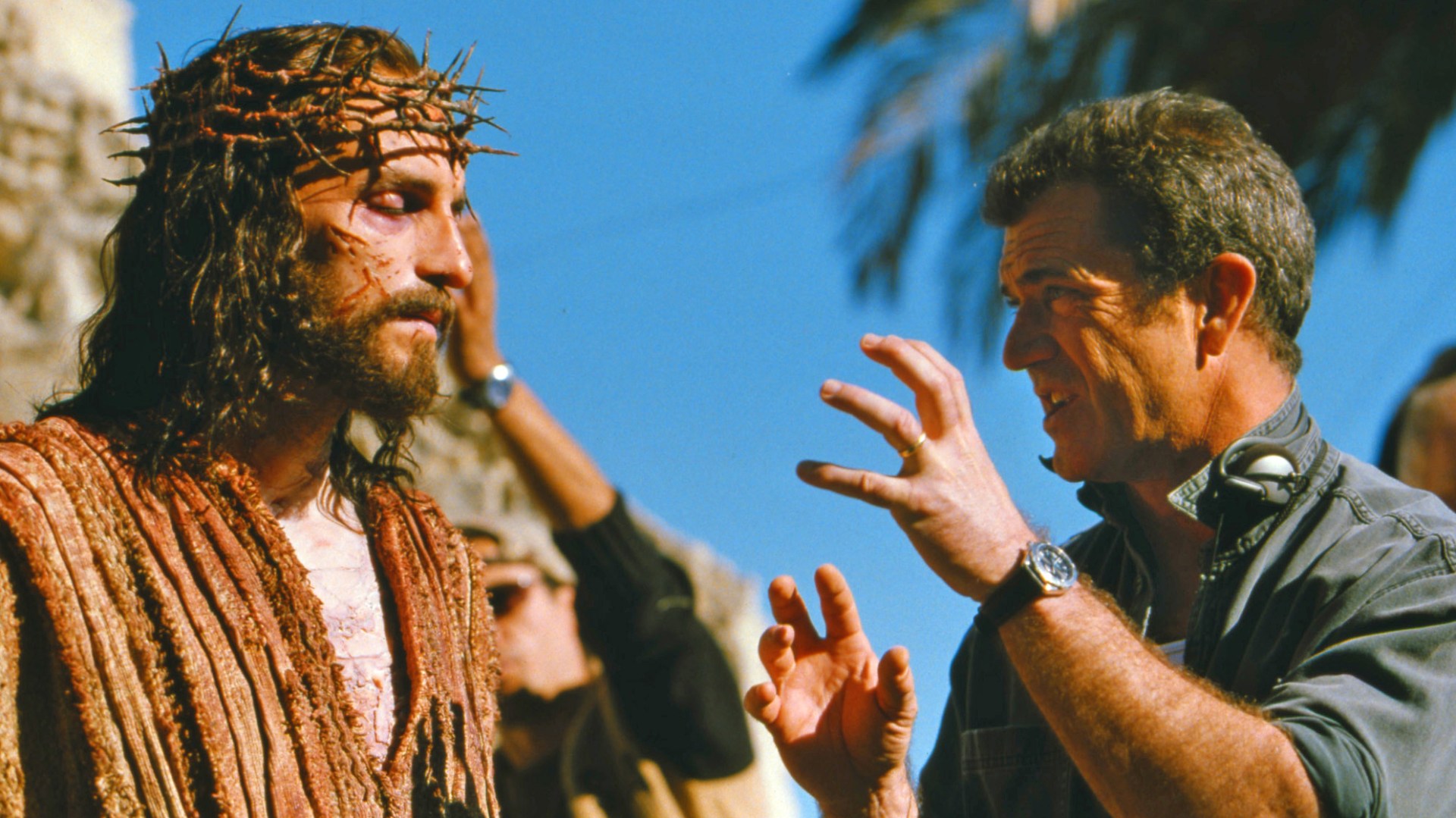Of the making of movies about Jesus, there is no end. In the first three months of this year alone: Son of Man, which casts a black man as Christ and sets his life in modern South Africa, got positive reviews at Sundance; the makers of Color of the Cross, which also casts a black man as Christ, established a website with trailers for their work-in-progress; and New Line Cinema announced that Oscar nominees Keisha Castle-Hughes (Whale Rider) and Shohreh Aghdashloo (House of Sand and Fog) will star as the Virgin Mary and her cousin Elizabeth in a new movie about the Nativity, to be released in time for Christmas.
Some of this activity can be credited to The Passion of The Christ, which shattered box-office records and sparked interest in religious films when it came out in 2004. But movies about Jesus have always been popular, especially in times of heightened spiritual interest—the countercultural craze of the 1970s, the millennial anxiety of the late 1990s, etc.
No interpretation of the life of Christ can ever tell the full story. That is, indeed, one of the reasons we have four Gospels; each one paints a unique portrait of the Savior and emphasizes a different set of themes. Similarly, no mere movie about Jesus can capture the fullness of his divinity, or the fullness of his humanity, no matter how sincere its makers are; but the better films can help us to see a small part of the bigger picture.
This list is limited to those that focus mainly on Jesus' life story as told in the Gospels; thus, it does not include films about characters who are only peripherally connected to Jesus, such as Ben-Hur (1925, 1959). Also, because each film has its strengths and weaknesses, they are listed in simple chronological order; no ranking is implied.
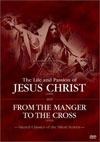
The Life and Passion of Jesus Christ
(1902-05)
Film was a new medium, only a few years old, when the Pathé company in France produced this series of short tableaux illustrating scenes from the Gospels. Like a series of icons brought to life, or a passion play enhanced by the odd special effect, The Life and Passion of Jesus Christ never pretends to be a drama; instead, it is a uniquely visual work of art which underscores the supernatural context within which Jesus' life and ministry took place. At times, the film borrows from later, post-biblical legends, but it also emphasizes Jesus' place within the Trinity, and it concludes with a fantastic (if a tad rickety by modern standards) shot of the Ascension and Jesus seated at God's right hand in the heavenly court.
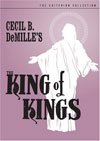
The King of Kings
(1927)
All of Cecil B. DeMille's best and worst instincts are on display in this, his last silent movie. Fortunately, he gets the tawdry stuff out of the way pretty fast. The ludicrous opening sequence features a scantily-clad Mary Magdalene hosting a banquet and asking what has happened to her lover Judas Iscariot; but once Jesus casts the seven demons out of her—one of several biblical details included here that most films omit—the film relies on the Gospels for most of its content. That said, DeMille also rearranges episodes from the Bible in ways that are startlingly original yet quite effective. Re-issued in the 1930s with a music and sound-effects track, The King of Kings was such a big hit that no Hollywood studio would make another life-of-Jesus movie until the 1960s, after DeMille had passed away.
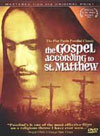
The Gospel According to St. Matthew
(1964)
Right from its very first frames—when a visibly upset Joseph beholds a very pregnant Mary—this film challenges the soft-focus piety that affects many adaptations of the Gospels. Director Pier Paolo Pasolini, a gay Marxist atheist who was famous for his poetry before he turned to filmmaking, certainly wanted to confront the conventional spirituality of his day, and his Jesus is more aggressive than most. But nearly every single line of dialogue comes from Matthew's Gospel (a pattern that would be followed decades later by Campus Crusade's adaptation of Luke and the Visual Bible's adaptations of Matthew and John), and the film's gritty, down-to-earth realism underscores the revolutionary nature of Christ's message; you can believe the authorities would want to crucify this guy. While the film is often hailed for stripping the story down to its basics, it also reflects Pasolini's belief in finding transcendence within the everyday—an effect that is especially achieved on the eclectic soundtrack, which includes Bach, Negro spirituals, and the Missa Luba.

The Greatest Story Ever Told
(1965)
Some will say that this expensive flop, produced by the devoutly Christian George Stevens (The Diary of Anne Frank, Shane), represents everything that is wrong with Hollywood adaptations of the Gospels: it's too pretty, it's too stilted, it's too American, it's too lavish to be an authentic depiction of first-century Galilean peasant society, and it's got too many distracting cameos, culminating in John Wayne's brief, out-of-nowhere appearance as the centurion at the crucifixion. And they would have a point. But the cinematography is gorgeous, and many of the performances are quite good, especially that of Max von Sydow (as Jesus), whose austerity is leavened with moments of deeply felt emotion. Note how he cries outside Lazarus's tomb, or the warm, robust smile he gives when he meets James the Lesser.

Godspell
(1973)
Prepare ye the way of the Lord! In some ways, Godspell, one of three musical Jesus movies released in 1973 (the others were Andrew Lloyd Webber's agnostic, angst-ridden Jesus Christ Superstar and Johnny Cash's The Gospel Road), may not belong on this list. For one thing, it's set in modern New York—or rather, it uses modern New York as a backdrop; one sequence even takes place on the roofs of the then-brand-new World Trade Center towers. It is also less concerned with the life of Jesus than with his sayings, especially the parables and the Sermon on the Mount, and how they resonated with the countercultural mood of that time. But it is precisely this focus on the teachings of Christ that makes the film unique. Its comical approach to the parables, and its depiction of Christ as a clown in make-up, were controversial at the time, but that debate seems quaint now in the age of VeggieTales. The giddy, and at times prayerful, music is by Stephen Schwartz (The Prince of Egypt).
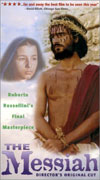
The Messiah
(1976)
Roberto Rossellini was one of the pioneers of post-war Italian neorealism, in films like Open City (1945), and his controversial film The Miracle (1948) prompted a landmark American court case which ultimately led to movies being recognized, for the first time, as an art form protected by free-speech laws. Toward the end of his life, he made a series of "didactic" historical biopics focusing on characters like Socrates, St. Augustine, and Blaise Pascal, and one of his very last films was this portrait of Jesus. Rossellini did not believe in "seducing" the audience with dramatic effects, so he downplays the miracles and the violence—all the stuff that other filmmakers revel in—even while he acknowledges that they occur. His version of the story emphasizes the brotherhood of men more than Christian faith, per se, but in doing so it also underscores the fact, often ignored by films in this genre, that the disciples went out and spread Jesus' message even while the Master was still alive.

Jesus of Nazareth
(1977)
Some would say this is the best Jesus film; it is certainly the most. At six and a half hours, Franco Zeffirelli's mini-series gets to explore the Gospels at greater length than usual, and it fleshes out the supporting characters in ways that convey the breadth and depth of the impact Jesus had on his contemporaries. The film alternates, somewhat awkwardly, between everyday naturalism and pious theatricality; this may be the first film to show the Virgin Mary going into labor, but after her pains have ended, some shepherds arrive and speak portentously about their encounter with the angels, finishing each other's sentences as they do so. Also, as Jesus, Robert Powell has the British accent, blue eyes, and John Lennon hair that have become something of a cliché. Still, this film is supported by a fine cast (no distracting cameos here!), as well as some stirring music by Lawrence of Arabia's Maurice Jarre, and it emphasizes the Jewishness of Jesus like few others—not only to remind us of his ethnicity, but to underscore the prophecies that he fulfilled.
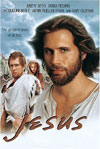
Jesus
(1999)
Produced as part of Lux Vide's "Bible Collection" series, this two-part TV-movie is kind of like The Last Temptation of Christ without the heresy. That is, it presents Jesus as a haunted and vulnerable human being who struggles with romantic attractions (to Mary of Bethany, this time) and a growing awareness of his destiny—but instead of fleeing God, he always chooses God's will for his life. Some viewers found Jeremy Sisto's interpretation of Christ a little too casual and buddy-ish, but this is one of the few Jesus films to understand that being human is about more than having emotions and dancing at parties; it is about finding God's will, and following it to the best of our ability. Note also the scene where Satan visits Jesus in Gethsemane and, taunting him with visions of nations and churches committing atrocities in Jesus' name, tries to convince him his death on the cross will be in vain; this is a far more sobering "last temptation" than anything imagined by Martin Scorsese.
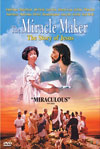
The Miracle Maker
(2000)
Shown in theatres in Europe and on television in North America, this follow-up to the Welsh-Russian TV series Testament: The Bible in Animation was the first major animated cartoon about the life of Jesus. Like the series that preceded it, The Miracle Maker employs a mix of animation techniques, and in a very purposeful way. The day-to-day experiences of Jesus and his followers are depicted with stop-motion puppets, while the parables, flashbacks, memories and spiritual encounters are depicted the traditional, hand-drawn way; the scene in which Jesus casts the demons out of Mary Magdalene is especially striking, as it segues from one style of animation to the other. Co-produced by Mel Gibson's Icon Productions and written by Christian author Murray Watts, the film stars the voice of Ralph Fiennes, whose Jesus is by turns tender, humorous, exasperated, and above all very, very engaging.
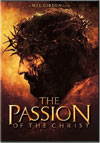
The Passion of the Christ
(2004)
Mel Gibson's highly controversial, and highly personal, meditation on the death of Christ is a work of profound Catholic devotion, inspired by sources as diverse as the Stations of the Cross and the visions of Sister Anne Catherine Emmerich, a stigmatic German nun; it is also possibly the boldest, starkest portrayal of evil, both human and supernatural, since The Exorcist. The Latin and Aramaic dialogue now seem like a merely Gibsonian conceit, given the all-Mayan script for his upcoming follow-up Apocalypto; but they do contribute to the film's otherworldly and at times shockingly surreal tone. The violence aside, Gibson makes strikingly effective use of objective and subjective cinematic techniques to convey the divinity and humanity of Christ, respectively; and, more than any recent director, Gibson captures the grand supernatural conflict which gives the death of Christ its meaning.
Copyright © 2006 Christianity Today. Click for reprint information.

